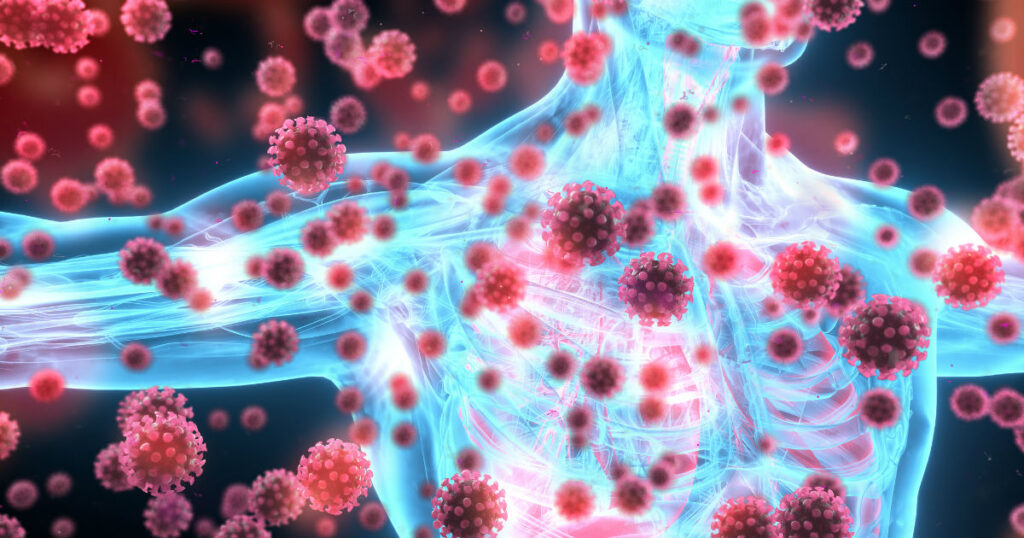Eggs have long been celebrated as a nutritional powerhouse, offering a range of essential nutrients packed into a convenient and versatile package. Among these nutrients, protein stands out as a key component, contributing to the egg’s reputation as a staple in many diets worldwide. From a professional bodybuilder’s diet to an average gym-goer’s diet, egg is almost everywhere. In this article, we delve into the details of how much protein in an egg, exploring its nutritional value, benefits, and considerations for incorporating eggs into a balanced diet. Without further wasting time, let’s take a close look to know how much protein in an egg?
Also Read: Whole Eggs Vs Egg Whites: Let’s Crack The Debate to Choose Wisely!
Nutritional Value Beyond Protein
While protein is a standout nutrient in eggs, there are much more that eggs offer in terms of nutritional value. Eggs are rich in vitamins, minerals, and other essential nutrients, making them a nutrient-dense food choice. Before diving deep into “how much protein in an egg?”, let’s know several other nutrients that make eggs nutritional powerhouse.

Vitamins
Eggs contain a range of vitamins, including vitamin A, vitamin D, vitamin E, vitamin B12, riboflavin (vitamin B2), and folate (vitamin B9). These vitamins play vital roles in various bodily functions, including vision, bone health, immune function, and energy metabolism.
Minerals
Eggs provide essential minerals such as iron, phosphorus, selenium, and zinc. These minerals are involved in processes like oxygen transport, bone health, antioxidant defense, and immune function.

Healthy Fats
While eggs have been previously criticized for their cholesterol content, they contain healthy fats, including monounsaturated and polyunsaturated fats, which are beneficial for heart health when consumed as part of a balanced diet.
Antioxidants
Eggs contain antioxidants namely lutein and zeaxanthin, which are extremely beneficial for eye health and may help to reduce the risk of age-related macular degeneration.
Protein Content in Eggs: A Closer Look
Now, it’s time to know how much protein in an egg. As we already know, eggs are renowned for their high-quality protein content, making them a valuable source of this essential nutrient. The protein in eggs is found primarily in the egg white, also known as the albumen, with a smaller amount present in the yolk. The protein content can vary slightly depending on factors such as the size of the egg and the diet of the hen, but on average, a large egg contains approximately 6-7 grams of protein.

To put this into perspective, a single large egg provides roughly 12-14% of the recommended daily intake of protein for an average adult, based on a diet of 2,000 calories per day. This makes eggs an efficient and convenient way to boost protein intake, whether enjoyed on their own or incorporated into various dishes and recipes.
Benefits of Including Eggs in Your Diet
Now that you have got the answer to how much protein in an egg, it’s time to know that incorporating eggs into your diet offers a range of potential health benefits, thanks to their nutrient-rich composition including protein obviously. Some of the most amazing benefits of including eggs in your diet are as follows.
Supports Muscle Growth and Repair
Protein is essential for the muscle growth, repair, and maintenance. Consuming eggs, which are rich in high-quality protein, can help support muscle health, especially when combined with regular exercise.

Promotes Feeling of Fullness
Eggs are a satiating food, meaning they help you feel full and satisfied after eating. Including eggs in meals can help curb hunger and reduce overall calorie intake, potentially supporting weight management efforts.
Contributes to Heart Health
Contrary to previous concerns about cholesterol, research has shown that moderate egg consumption does not negatively impact heart health for most people. In fact, eggs can be part of a heart-healthy diet when consumed as part of a balanced eating pattern.

Provides Essential Nutrients
Eggs are a rich source of essential vitamins, minerals, and antioxidants that support overall health and well-being. Including eggs in your diet can help ensure you meet your daily nutrient needs.
Versatility in Cooking
Eggs are incredibly versatile and can be prepared in numerous ways, making them suitable for breakfast, lunch, dinner, and snacks. From omelets and scrambles to salads, sandwiches, and baked goods, eggs add flavor, texture, and nutrition to a wide range of dishes.
Considerations and Tips for Enjoying Eggs
While eggs undoubtedly offer numerous health benefits, there are a few considerations to keep in mind.
Portion Control
While eggs are nutritious, it’s essential to practice portion control, especially if you’re watching your calorie intake or managing cholesterol levels. Enjoy eggs as part of a balanced diet, alongside other nutrient-rich foods.
Food Safety
To reduce the risk of foodborne illness, it’s crucial to handle and cook eggs safely. Store eggs in the refrigerator, cook them thoroughly, and avoid consuming raw or undercooked eggs, especially if you’re pregnant, elderly, or have a compromised immune system.

Dietary Preferences and Restrictions
If you follow a vegetarian or vegan diet, eggs may not be suitable for you. However, there are many plant-based alternatives available, such as tofu, tempeh, legumes, and nuts, that can provide protein and other essential nutrients.
Allergies and Sensitivities
Some people may have allergies or sensitivities to eggs or egg proteins. If you experience adverse reactions after consuming eggs, such as hives, digestive issues, or difficulty breathing, consult with a healthcare professional to determine if you have an egg allergy or sensitivity.

Conclusion
In conclusion, eggs are a nutrient-dense food that provides an array of essential nutrients, including high-quality protein. With approximately 6-7 grams of protein per large egg, they are a convenient and versatile option for boosting protein intake and supporting overall health. Including eggs in your diet can offer numerous health benefits, from supporting muscle growth and repair to promoting feelings of fullness and contributing to heart health. However, it’s essential to practice portion control, handle eggs safely, and consider individual dietary preferences, restrictions, and allergies when incorporating eggs into your meals. With their nutritional value and culinary versatility, eggs remain a valuable addition to any balanced diet. Hopefully, you got your answer to how much protein in an egg. If you really found this article helpful enough then let us know your valuable thoughts in the comment section down below. Thanks for visiting and appreciating our work.
